- Home
- slideshows
- miscellaneous
- 'Like a natural disaster had hit': Venezuela's crisis is spilling over its borders - here's what it's like at ground zero of the exodus
'Like a natural disaster had hit': Venezuela's crisis is spilling over its borders - here's what it's like at ground zero of the exodus
"I just didn't expect it to look exactly like the most alarmist news reporting, but it did."

"They need something. They're way overwhelmed."
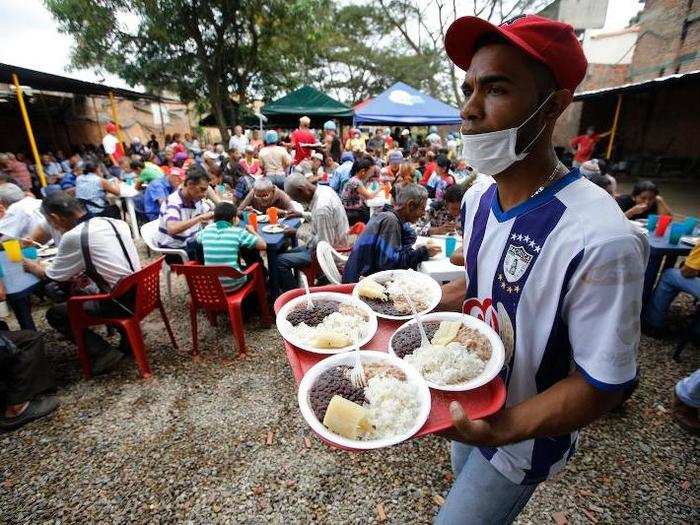
Woody: At a recent event in New York City, Colombia's consul general said of the influx of Venezuelans, "It's an ongoing crisis at the moment, so I don't have a happy ending, but still, we're working on it." It seemed like they're just trying to catch up.
Isacson: I don't think they are even trying, really ... The most they've done — and this is with money from the Red Cross and UNHCR, the UNHCR IOM [UN High Commissioner for Refugees - International Organization for Migration] — is like a center that can hold 120 people for 48 hours in Cucuta, and everything else just ends up on the regular ministries. The statistic is 25,000 ER visits last year, up from like 1,500 in 2015 — that just comes out of the Health Ministry budget. There's no emergency fund, and if they've made a concrete request to international donors, I haven't heard about it yet.
[Joseph McManus, Trump's pick for US ambassador to Colombia] in his hearing last week said there are a lot of discussions right now inside State and AID, but I don't think the Colombians have specified what they need yet. But they need something. They're way overwhelmed.
"That makes a lot of ... the poorest 10% to 20% very angry at the Venezuelans."
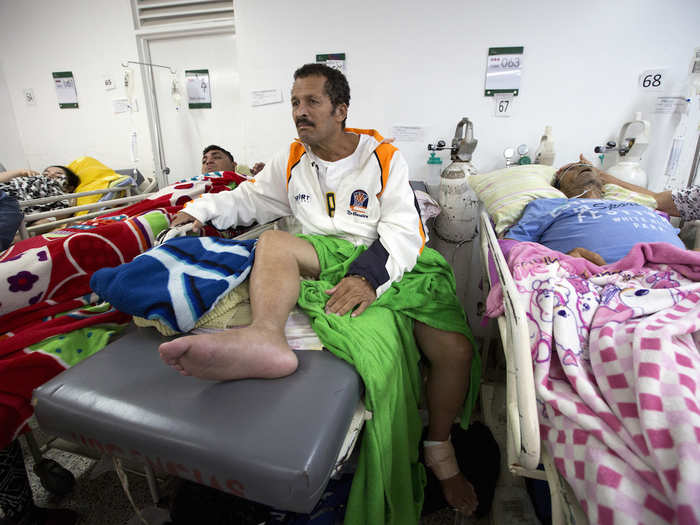
Woody: Colombia's consul general also mentioned what seemed like to be a pretty severe backlash developing among Colombians, because, like you said, it's straining a lot of their resources. In your time there, did you get sense that was the attitude among Colombians?
Isacson: Yeah ... there's two things. One, anybody who had a job in the informal sector to begin with, [you have] a million Venezuelans crowding you out, willing to work cheaper, because really they just want food. This goes for the ... legal informal sector, but also apparently in Catatumbo, they're taking over the raspachines, the people who pick the coca leaves, because they'll do for less money — they'll do it, just pay them in food. And so that makes a lot of that sector, the poorest 10% to 20%, very angry at the Venezuelans.
Then you also just hear a lot of things you hear almost in every area where there's a lot of migrants, that they're contributing to common crime, they're begging ... petty theft at the street corners. Anytime a crime happens, they go, 'Oh, must've have been a Venezuelan.' Same thing you'd hear about Guatemalans in southern Mexico or about Mexicans in a lot of border areas too.
On the other hand, there's, a lot of the Venezuelans have come across are people who had ties to Colombia to begin with. I think that's stopping now, and you've got pure Venezuelans coming now — that's new. And for 20 years you had a couple million, two or three million Colombians go to Venezuela, so there's sort of a sense of payback in some way, that Colombians can't get too mad because they were a source of so many refugees for so long.
"A lot of people just kind of get stuck in Cucuta."
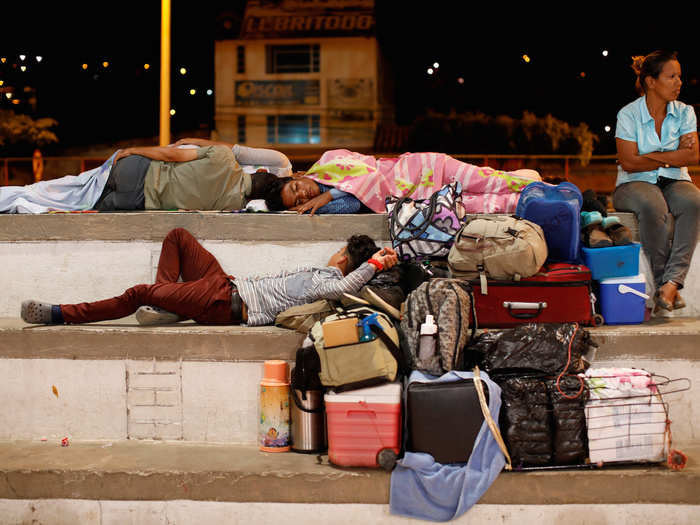
Woody: There seems to be a transitory nature to the movement of some Venezuelans. A lot of them are coming over for a day or a few days, or that those border areas are just a stopping point where they head on to elsewhere in Colombia or to another country. Did you get a sense of that?
Isacson: One human-rights defender told me they're even walking to Bogota from Cucuta [roughly 350 miles by foot], which I didn't see ... But yeah, a lot of people, their ultimate destination is Bogota or a larger city that has more to offer.
But then a lot of people just kind of get stuck in Cucuta, or, like you said, they're going to stay for a few weeks and then come back, and go back and forth ... on one side you have the ability to at least make enough money to eat by scrounging, and on the other side you probably still have a home, which you're sleeping in a park maybe on the Colombian side. God, what a life.
"They were describing it like a natural disaster had hit."
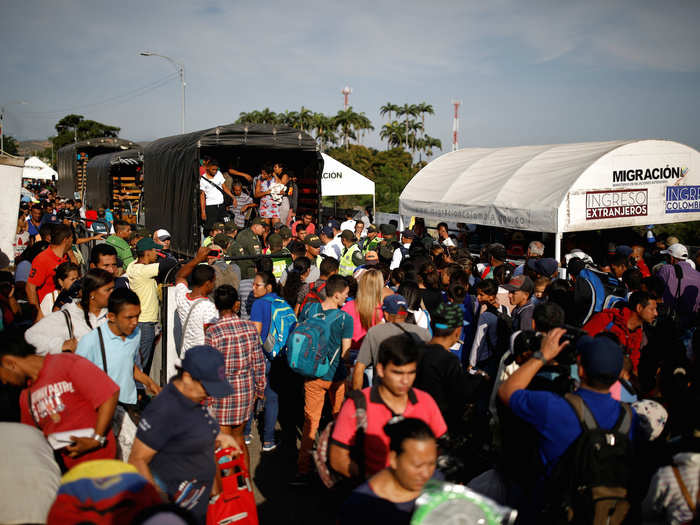
Woody: You were all over the country, and I imagine you talked to a lot of officials. Did you get a sense for what kind of burden the Venezuelan problem was putting on the government and local officials at a time when they're trying to manage post-FARC-conflict programs, the run-up to the presidential election, and they're obviously fighting crime and drug cultivation. How did that add to and complicate what they're facing?
Isacson: In Norte de Santander and to a lesser extent in Arauca they were describing it like a natural disaster had hit. And so you've got this budget for peace-accord implementation, and it's had to be cut back, because so many resources get drained by however Venezuelans are eating up social services.
I didn't get hard figures from people, like, 'A certain percentage of my municipal budget is now going to Venezuelans.' I didn't hear that. And a lot of it could be perceptions, because clearly the Venezuelans are not really being provided for, unless they're in danger of imminent death or involved in crime. But the impression was, it was in Putumayo too, where they had that, last year, mudslide that killed 300, maybe 500 people, and that was a similar drain on what could've been post-conflict resources ... It was like these unexpected things that happened that it made it harder to start delivering services, even though things were more peaceful, at least for mayors and governors.
'Like a natural disaster had hit': Venezuela's crisis is spilling over its borders - here's what it's like at ground zero of the exodus
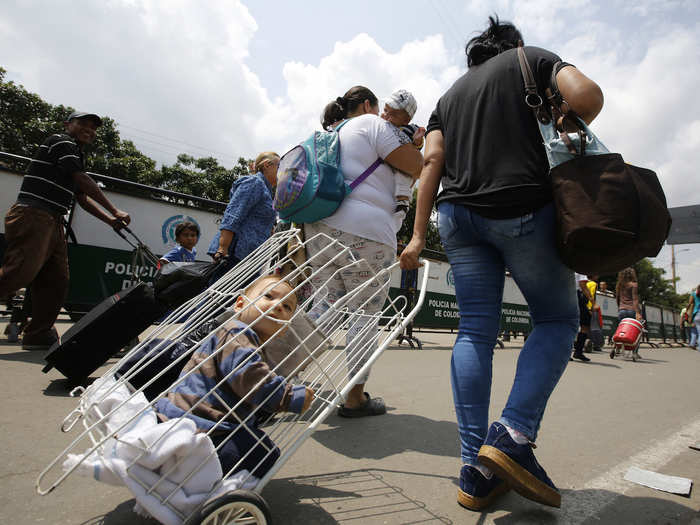
Popular Right Now
Popular Keywords
Advertisement